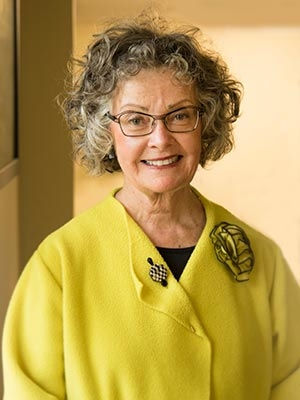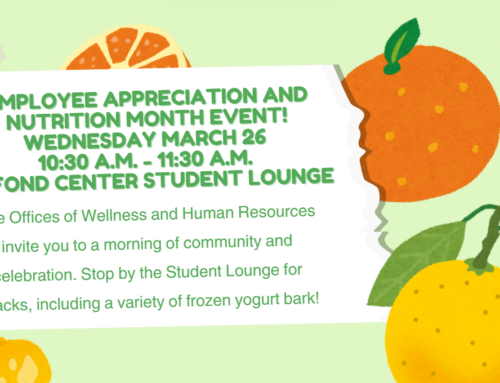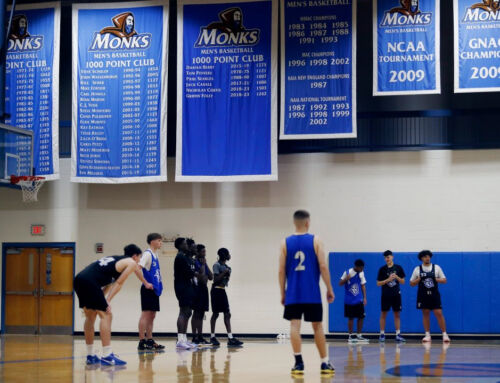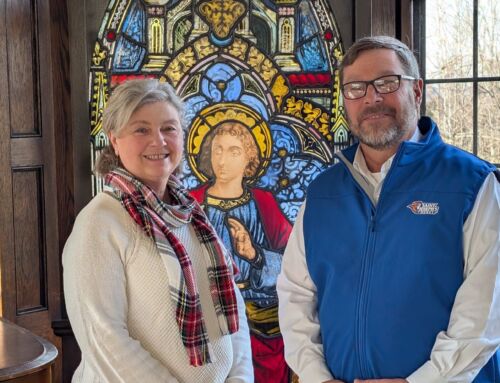 Year after year, teachers empower their students to learn, to grow, and to reach for success. When that teacher is Janice M. Rey, Ed.D., who, for the past 13 years has taught Saint Joseph’s College’s education students how to become elementary school teachers, the impact one teacher can make becomes enormous. Dr. Rey teaches the teachers. She has devoted herself to keeping American K-8 classrooms staffed with the most gifted teachers possible. A long-time advocate for “service learning,” Rey’s work was recognized recently by Maine Campus Compact with a Donald Harward Faculty Award for Service-Learning Excellence. This award is given annually to three outstanding faculty members in Maine who make public service an integral part of their curriculum, create reciprocal partnerships with communities, and advocate for service-learning.
Year after year, teachers empower their students to learn, to grow, and to reach for success. When that teacher is Janice M. Rey, Ed.D., who, for the past 13 years has taught Saint Joseph’s College’s education students how to become elementary school teachers, the impact one teacher can make becomes enormous. Dr. Rey teaches the teachers. She has devoted herself to keeping American K-8 classrooms staffed with the most gifted teachers possible. A long-time advocate for “service learning,” Rey’s work was recognized recently by Maine Campus Compact with a Donald Harward Faculty Award for Service-Learning Excellence. This award is given annually to three outstanding faculty members in Maine who make public service an integral part of their curriculum, create reciprocal partnerships with communities, and advocate for service-learning.
“Service learning” refers to a teaching strategy that integrates meaningful community service with instruction. Soon after Rey arrived at Saint Joseph’s College in 2004, she began to find ways to connect college students, who were training to become teachers, with elementary classrooms in Portland. Rey explained, “With service learning, the ideal is about the longevity of the partnership. That’s what’s important. It’s not just finding the right match between an educational program and the community; it’s making sure that the right match is mutually beneficial, sustainable, and long-lived.” Rey ended up forging a long-lasting partnership with the Riverton School as a service-learning site. Since 2009, her “pre-service teachers” have learned how to teach science in the diverse, urban school, delivering five or six consecutive science sessions and teaching a mini unit to all fourth and fifth graders.
“Most college education students don’t have a realistic picture of what teaching will be like,” she said. “They need to compare their ideal vision of teaching with the reality. We use service learning to connect them with that reality. Saint Joseph’s College students go out freshman year for a practicum. The bulk is observation, but the host teacher puts them to work very quickly. Second semester of sophomore year they teach; this early field experience does not necessarily occur elsewhere. Because it’s an authentic, teaching experience, all of a sudden the curriculum, the knowledge, the pedagogy all come to the surface because now you have real children, real students.”
“The powerful part is that this experience occurs in an urban setting. Many of our students are not from a city where they experience cultural diversity to this degree. More than 20 different languages are spoken at Riverton School. I think the Saint Joseph’s students are in awe of these children, many of whom have come here to seek refuge. It’s an eye-opening degree of cultural diversity. And, as they move from peer teaching–which is more like pretending to be the teacher–to an authentic experience, everything comes together. It’s where they realize what works and what doesn’t. Science is about managing materials. They learned very quickly that as soon as you give out batteries, water, and wires, they will begin to play and experiment. They are no longer listening to directions. They realized that they had to bring the students closer, give directions, use visual presentation and do the explanation to prepare them before the experimentation, hands-on part.”
Dr. James Dlugos, Saint Joseph’s President, described the impact of Rey’s work, “Janice’s work as an educator is clearly grounded in her understanding that she is teaching people from many different places and with many different stories—not a subject matter or a discipline. Her commitment to that fundamentally important reality is one of the gifts she shares with her Saint Joseph’s students and, we hope, that they, in turn, will make central to their own vocations as teachers.”
Dr. Rey has advocated for service learning in educating the next generation of teachers at regional and national events, including: the Maine Science Teachers Association Annual Conference, the Association of Teacher Educators, and the Conference for Mercy Higher Education. Her scholarship on the role of service learning in elementary education is available in the Academic Exchange Quarterly.
About Maine Campus Compact
Maine Campus Compact is a coalition of 18 member campuses that leads a movement to reinvigorate the civic mission of higher education. The 2017 Maine Campus Compact awards ceremony was held April 26 at the Southern Maine Community College campus. Faculty members, students, campus organizations, and community and corporate partners were among those recognized.


